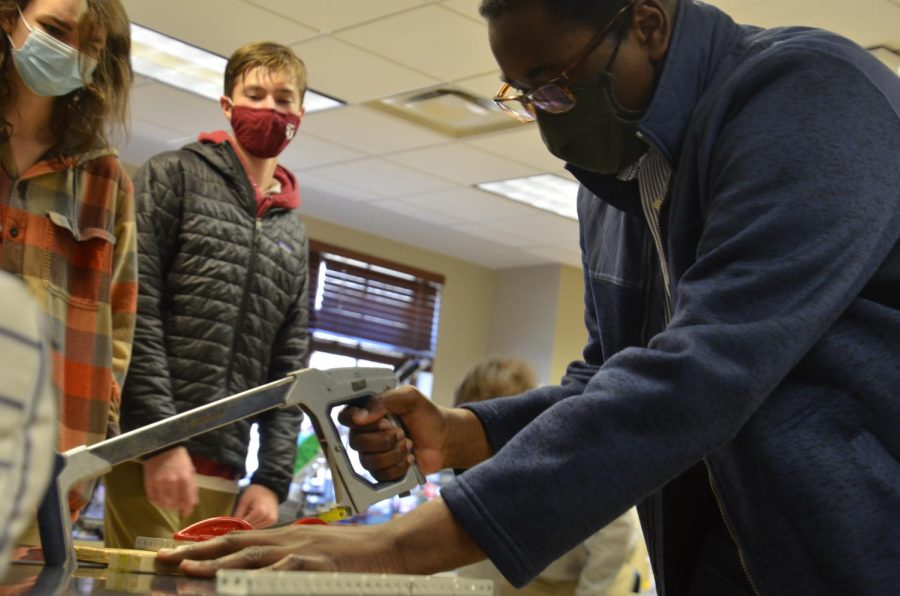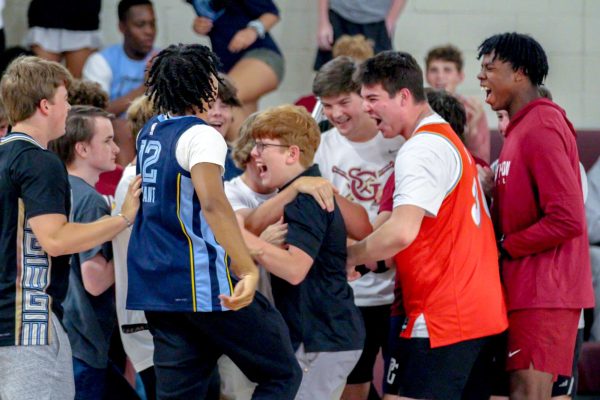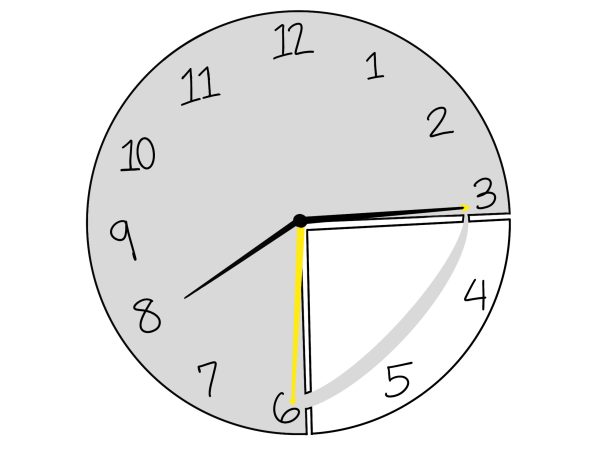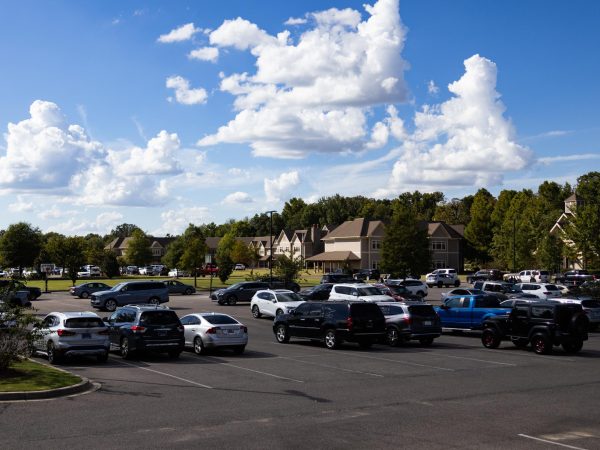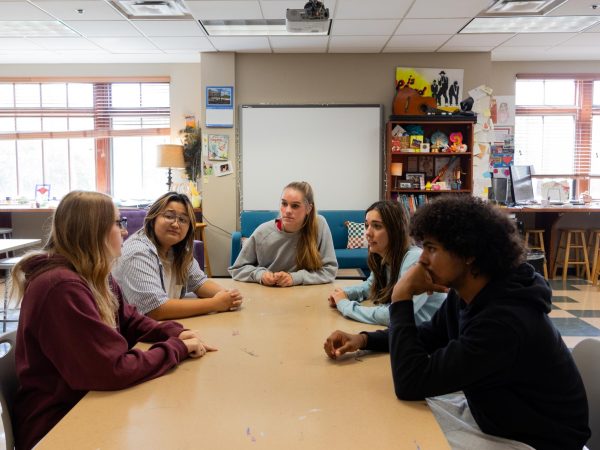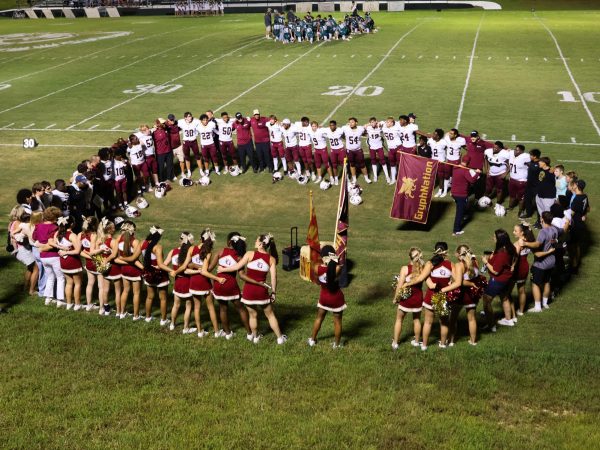Accept the Challenge
It’s been a year to grow for the. robotics program
Photo: Jack Seigerman
Seniors Walker Askins, Travis Lane and Tyler Ridout saw metal for their robot. Measurements must be precise to work for the robot’s purpose.
Sloan Carruth was exuberant.
“When all the awards were announced, I was with friends and started jumping around and freaking out,” she said.
It was May 2021, and Carruth had just found out she won the first VEX Robotics World Championship award that St. George’s has ever received. She was an eighth-grader at the time and is now a freshman.
“They called out my team number first, and I had memorized it. It was like utter disbelief,” she said. “After you work so hard on something for so long, for all of it to pay off is just the best feeling in the world.”
Competing on Zoom was a totally different experience for Carruth.
“I Zoomed in from my house, and I had all my [robotics] stuff,” she said. “It was a really cool way to do it because it really connects a lot of people. I had people in my division from Shanghai.”
Carruth went through several rounds and interviews.
First, she had to qualify for the Tennessee state competition to get into the Vex Robotics World Championship. Only then could she compete in different divisions and have the opportunity to win awards. Carruth ended up winning an award that honors the team whose robot “incorporates the most creative engineering design solution to the challenges of this season’s game.”
“I did autonomous runs, and I won an award for the design of my robot,” Carruth said. “I got the Create Award, which is basically the most creative robot in your division, how you put it together and what type of functions it’s able to complete.”
Autonomous runs are when the robot only relies on the code that has been programmed into it to move.
This was a huge accomplishment, both for Carruth and the robotics program.
According to Ms. Crista Smothers, middle and high school robotics teacher, the program faced a lack of local tournaments during the pandemic.
“COVID has been a challenge for doing robots,” Ms. Smother said.
Because of this, Ms. Smothers. has viewed this year as a time to grow the program.
“I’m really letting it be a learning year,” said Ms. Smothers. “The students who haven’t been able to do the metal robots yet will know how to build them, how to program them and how to work together with other students and communicate.”
However, for new students, there is still a helpful program
of mentors, with many students continuing robotics from previous years.
Senior Isaiah Lewis began robotics in seventh grade and has been doing it since. He believes that robotics will be helpful in reaching his future goals.
“I want to be a mechanical engineer, ideally, so it’s nice to have tactile building,” said Lewis. “It’s good training for that kind of work, and a big thing of that is problem-solving.”
Ms. Smothers said that robotics can prepare students for future jobs, college and real-life experiences.
“You fix one problem, and there’s another problem that comes up, so dealing with frustration and dealing with a plan to see if there are any problems. No matter if they want to be an engineer, business major or biologist, those are things that I want them to learn,” she said.
The key to learning those lessons for robotics students is the challenges that come from VEX Robotics. Every year, students are challenged to develop a robot to be able to successfully beat a challenge.
This year, there are game pieces that the robots must pick up and put on mobile goals to earn points. More points come from getting the mobile goals and robots balanced on a see-saw.
Challenges like this have encouraged students like freshman Griffin Davis to develop creative thinking skills. Davis started doing robotics in eighth grade and has continued the program in high school. He noted the difficulties robotics brings.
“The biggest challenge of building a robot is making sure every little thing is in the right place,” Davis said, “one screw or one wrong pole can mess up everything. You constantly have to double-check to make sure everything is right.”
Because of how tough and complex robotics can be, Ms. Smothers only asks a few things from her students.
“I think the biggest thing I want is teamwork, to communicate their ideas with each other, to solve a technical issue and learn how to problem-solve,” said Ms. Smothers. “I’m also trying to build people’s confidence. I’ve got a lot of students who maybe don’t feel comfortable in certain areas, but in this, they can.”


